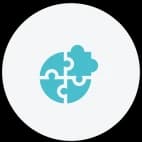Holiday Special | Enjoy 20% OFF – Celebrate the Season with Big Savings!Holiday Special | 20% OFF!

Eligibility requirements to join Snowflake Training Training
Enrolled
Snowflake Training Eligibility and Prerequisites
Prerequisite to learn Snowflake includes a solid understanding of databases and SQL (Structured Query Language). Since Snowflake operates as a cloud data warehouse, it's essential that learners are familiar with database management systems and SQL queries. You don't need to be an expert, but having a working knowledge of how databases store, retrieve, and manipulate data will make it easier for you to follow along with the Snowflake course content.
Another important Snowflake training prerequisite is basic knowledge of cloud computing. As Snowflake is a cloud-native platform, understanding cloud services, infrastructure, and cloud storage solutions will give you an edge. Familiarity with cloud providers like AWS, Azure, or Google Cloud Platform is beneficial since Snowflake integrates with these platforms.
Additionally, understanding data warehousing concepts is another prerequisite to learn Snowflake. Knowing how data warehouses work, including ETL (Extract, Transform, Load) processes, data modeling, and data pipelines, will help you grasp Snowflake’s unique features, such as its separation of storage and compute, and its data sharing capabilities.
For those coming from a non-technical background, it is advisable to go through foundational courses in SQL, databases, and cloud computing before beginning Snowflake training. While Snowflake training prerequisites aren’t overly complex, having this knowledge ensures you can keep up with the course content and understand the various functionalities Snowflake has to offer.
Finally, some courses may also recommend basic programming skills, especially in Python or JavaScript. While this is not a mandatory prerequisite to learning Snowflake, it can be useful if you plan to work on data engineering or integration tasks within the Snowflake environment.
The prerequisites for learning Snowflake are designed to equip you with the foundational knowledge necessary to succeed in Snowflake training. By understanding SQL, databases, cloud computing, and data warehousing, you can maximize your learning and take full advantage of Snowflake’s capabilities. Make sure to assess your current skills and address any gaps before beginning your training to ensure a smooth and rewarding learning experience.
Snowflake Course Overview
Key Features








Who All Can Attend This Snowflake Course?
Aspiring data professionals, analysts, and IT enthusiasts seeking proficiency in Snowflake are welcome to join our comprehensive training program. Elevate your skills and career prospects today.Prerequisites To Take Snowflake Training
An individual has to meet certain eligibility criteria to attend the Snowflake course. The prerequisites for Snowflake training are:
Basic understanding of SQL, Database concepts, knowledge of database schema.

- Upskill or reskill your teams
- Immersive Learning Experiences
- Private cohorts available
- Advanced Learner Analytics
- Skills assessment & benchmarking
- Platform integration capabilities
- Dedicated Success Managers

- Upskill or reskill your teams
- Immersive Learning Experiences
- Private cohorts available
- Advanced Learner Analytics

Play Intro Video
Seeking Placement Assistance?
Explore the perks of Snowflake with our comprehensive training. Streamline your architecture effortlessly, speeding up feature delivery—whether it's embedded analytics or generative AI. Extend your applications to thousands via Snowflake Marketplace or private listings. Ease operational tasks with automatic scaling, ensuring responsiveness without compromising margins. Scale seamlessly, avoid over-provisioning, and pay per second. Benefit from Snowflake's managed service for constant availability, automated processes, and security across clouds and regions. Code in any language, utilizing configurable hardware like GPUs. Experience simplicity in deployment, be it LLMs, UIs, or APIs, via an integrated image registry. With exciting features like Hybrid Tables and Native App Framework, discover a world of possibilities in Snowflake training.
We conduct Snowflake training in all the cities across the globe and here are a few listed for your reference:
India, Bangalore, Hyderabad, Pune, Chennai, Mysore, Cochin, Vishakapatnam, Delhi, Mumbai, Gurgaon, Kolkata, Coimbatore, Ahmedabad, Noida, USA, Canada


Skills Focused
OLTP VS OLAP
Cloud Introduction
On-Premises vs IaaS vs PaaS vs Saas
Getting started with snowflake
Cloud providers that Snowflake supports
Snowflake editions
Connecting to Snowflake
Shared Disk & Shared Nothing Architectures
Deep dive on Layers in snowflake architecture
- Centralized Storage
- Compute
- Cloud Services and Cloud Agnostic Layer
Creating a warehouse
Deep dive on properties of warehouses
Warehouse Sizes
Multi-Cluster Warehouses
Compute Cost optimization
Scale Up vs Scale-Out
Multi-warehouse modes
- Maximized
- Auto-Scale
Scaling policy
- Standard policy
- Economy policy
Auto Suspend & Auto Resume
Real challenges in Warehouse perspective
Account Level
- Warehouse
- Database
- Schema level
- Tables
- Views
- Stages
- File Formats
- Sequences
- Pipes
- Stored Procedures
- User Defined Functions
Deep dive into Permanent, Transient, Temporary, and External tables
- Managing external tables and stages
Views
- Regular, Materialized, secure views
Time Travel (UNDROP)
Fail-Safe
Zero-Copy Cloning
Roles in Snowflake
- ACCESS MANAGEMENT KEY CONCEPTS
- Discretionary Access Control (DAC)
- Role-Based Access Control (RBAC)
- RBAC vs DAC
- Default Roles in Snowflake
- ROLES ENCAPSULATION
- ROLES COMMANDS
Network policies in Snowflake
Storage Costs
Compute Costs
Cloud Services Costs and Data Transfer Costs
Capacity options (in terms of buying snowflake service)
- On-Demand
- Pre-paid
SNOWFLAKE MICRO-PARTITIONS
SNOWFLAKE PRUNING PROCESS
Clustering
- DATA CLUSTERING
- CLUSTERING DEPTH
- CLUSTER KEYS
- RECLUSTERING
External Stages
Internal stages
- User stage
- Table stage
- Named internal stage
Structured Data
Semi-structured Data
Creating sequences
Difference in the behavior of sequences with respect to RDBMS
Data Loading
Staging the data
How to access/load data from cloud storage (AWS S3, Azure Blob and Google cloud storage)
BULK LOAD
Real Issues that we encounter in copy into implementation with solution
- Error handling in data loads
- Bulk Data Loading Recommendations
- File Preparation (Sizing, splitting)
CONTINUOUS LOADà
- Snowpipe
- snowpipe configuration
- Integrating with cloud storage
- Real issues with snowpipe and how we overcome them
- Error handling and monitoring
Data unloading from snowflake
Bring data into snowflake stage and download
METADATA CACHE
QUERY RESULT CACHE
WAREHOUSE CACHE
Deep dive on all caches
TREE OF TASKS
TASK HISTORY
Limitations of tasks
Nested transactions
Issues encountered with transactions
Types of Streams
Practical examples that covers all stream use cases
Incremental/Delta and Historical data load implementation in real world (SCD scenarios)
Error handling in data pipelines
Career Path
Certification Process


Connect With Reps


